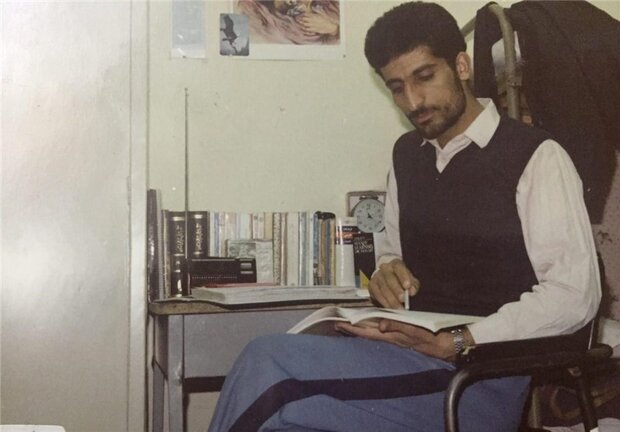National Journalists’ Day in Iran

TEHRAN– Iranians mark August 8 as National Journalists’ Day every year in a bid to pay tribute in honor of the martyred journalists.
August 8 (Mordad 17th) was designated National Journalists’ Day in Iran after Taliban militants killed an Iranian correspondent along with some diplomats in the northern Afghan city of Mazar-i-Sharif in 1998.
Twenty-five years ago on this day, eight Iranian diplomats and the journalist of the Islamic Republic News Agency (IRNA) named Mahmoud Saremi were martyred at the Consulate of the Islamic Republic of Iran in Afghanistan, in spite of all international laws and treaties.
The red-letter day is a reminder of bitter memories that were imposed on the foreign policy apparatus and nation of Iran.
On the national day, Iranians hold ceremonies throughout the country to pay tribute in honor of the martyred journalists.

Who Mahmoud Saremi is
Saremi was born in Boroujerd in June 1968. Having received his diploma, participated in the national entrance exam, and was admitted to the field of geography, he immigrated to Tehran following a few semesters; he went to the battlefields for 17 months during the imposed Iran and Iraq war. Then, Mahmoud returned to the University to continue his education.
Saremi joined the IRNA in 1991 and got married in 1992 while continuing his postgraduate studies.
He was elected as the head of the IRNA office in Afghanistan in 1996. Despite the inherent risks in Afghanistan, the brave journalist covered the news stories concerning the crimes of the Taliban.
The committed journalist was eventually martyred in Mazar-i Sharif on August 8, 1998.
Marking the day by the Iranians is a tribute to a committed journalist who despite all the dangers stood until the last minute and sacrificed his life.

Killings of journalists up by 50% in 2022
The number of journalists killed worldwide significantly increased in 2022, following a decline over the previous three years, according to the United Nations Culture Agency (UNESCO).
In the released 2021-2022 Freedom of Expression report, UNESCO noted the deaths of 86 journalists last year, amounting to one every four days, up from 55 killings in 2021.
The findings highlight the grave risks and vulnerabilities that journalists continue to face in the course of their work, the agency said.
“Authorities must step up their efforts to stop these crimes and ensure their perpetrators are punished because indifference is a major factor in this climate of violence,” said UNESCO Director-General Audrey Azoulay, describing the findings as “alarming”.
UNESCO noted that nearly half of the journalists killed were targeted while off duty; some were attacked while traveling, or in parking lots or other public places where they were not on assignment, while others were in their homes at the time of their killing.
The report warned that this implies that "there are no safe spaces for journalists, even in their spare time".
Despite progress in the past five years, the rate of impunity for journalist killings remains “shockingly high” at 86 percent. Combating impunity remains a pressing commitment on which international cooperation must be further mobilized, the organization said.
In addition to killing, journalists in 2022 also were victims of other forms of violence. This included enforced disappearance, kidnapping, arbitrary detention, legal harassment, and digital violence, with women particularly being targeted.
Some of the reasons why the journalists were killed were due to reprisals for their reporting on organized crime, armed conflict, or the rise of extremism. Others were killed for covering sensitive topics such as corruption, environmental crime, abuse of power and protests.
Between 2006 and 2023, over 1,600 journalists have been killed around the world, with close to 9 out of 10 cases of these killings remaining judicially unresolved, according to the UNESCO Observatory of Killed Journalists.

The last and best report
Saremi’s last report was released on IRNA while Mazar-i Sharif fell into the hands of the Taliban and they were behind the Iranian consulate, intending to attack it.
"Today is August 8, 1998. My name is Mahmoud Saremi. I am IRNA’s correspondent. Mazar-i Sharif has fallen into the hands of the Taliban. Some of them are behind the Iranian consulate. Tell me what I should do…"
The telephone connection was suddenly interrupted...
